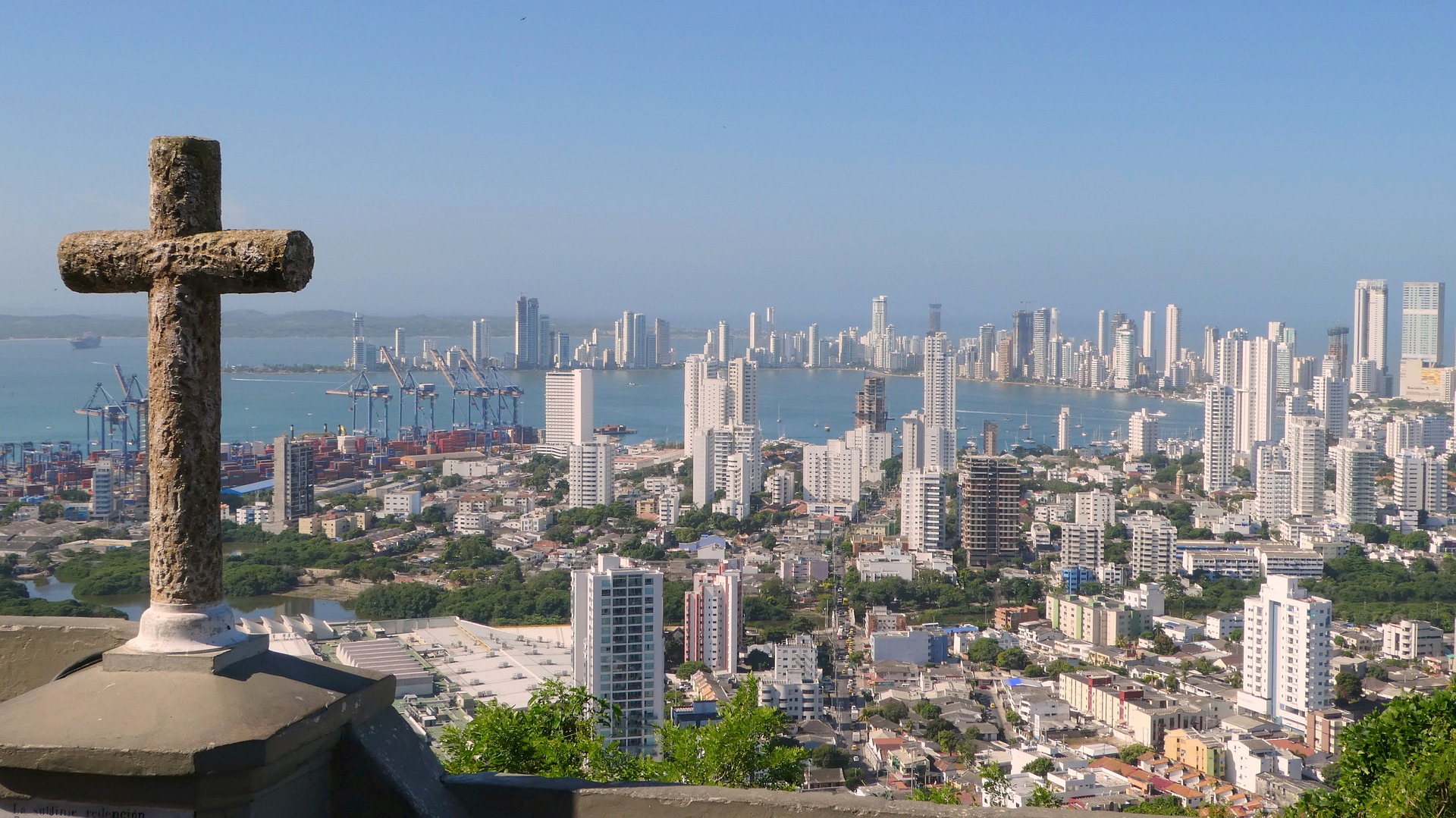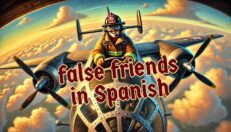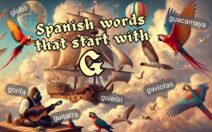Colombian Slang: Words You Won’t Learn In Spanish School

Get our free email course, Shortcut to Conversational.
Have conversations faster, understand people when they speak fast, and other tested tips to learn faster.
More infoColombian slang is the best.
Yes, I’ll admit that I’m a little biased as I’m Paisa (from Medellin), but in my opinion, the slang we use in Colombia is among the best of all the Spanish speaking countries in the world.
Even if you never visit Colombia (but you really should), learning our slang can be pretty fun, especially if you happen to meet a Colombian (or another Latino) and want to impress them with words you normally only hear native speakers use.
If you happen to visit Colombia, then make sure to drop by our Spanish school in Medellin, where you’ll learn all the NSFW Colombian slang words that other schools won’t teach you.
(sidenote: if you’re looking for the most common Spanish curse words, click here)
Most of the following words are slang terms you’ll hear in Colombia on a day-to-day basis and I have to admit that not all of the language is pretty, so if you’re easily offended, stop reading now.
And with that message out of the way….it’s time to begin, Parceros.
Parcero
Ah, I’ve already revealed our first word in the last paragraph. Often shortened to “parce”, this word is used in a similar way to “amigo”, but it can be used with barely known individuals, your all-time best friend, and everyone else in between.
Think of this word as an all-purpose word for embracing people.
- Ahi viene ese parcero, hace tiempo que no lo veía – There comes that dude, it’s been a while since I last saw him
¿Quiubo?
A contraction so common that it became slang. The was once “qué hubo?”, but after decades of use, has now been shortened. Although the direct translation is “what has happened?”, it’s used as a simple “what’s up?”.
- ¿Quiubo parce, todo bien? – What’s up man, is everything good?
Estar Prendido
The literal meaning is “to be lit”, which is kind of accurate, because the slang expression means to be buzzed.
- Ese parce está prendido, lleva bebiendo desde la tarde – That dude is really buzzed, he’s been drinking since the afternoon
Mi Llave
A llave literally means key in Spanish, but for a Colombian, a llave could be a really close friend (something you don’t want to lose either), and we sometimes call our close circle of friends our llavero, which means keychain.
- Voy a salir un rato con mi llave por ahí – I’ll go out with my friend and hang around
El Parche
Similar to llavero, this slang translates as “the patch” and is another label for a close group of friends.
- ¿Que vamos a hacer? ¿A donde salimos con el parche? – What are we gonna do? Where do we go out with the squad?
Dar Papaya
You probably recognize Papaya as the name of a fruit.
In Colombia, we say that if you leave your hand out with papaya for long enough, then someone will probably take it.
So when people tell you “no dar papaya”, it translates as “don’t give papaya”, but is meant as a warning: don’t put yourself in a vulnerable position where you may be taken advantage of.
For example, if you’re in a bar and you leave your cell phone unattended on the table while you go to the restroom, then a Colombian friend might tell you “No dar papaya” ie. don’t give anyone the opportunity to steal your phone.
Parar Bola
The literal translation is “to stand ball”, but in Colombia it means “to pay attention”.
- Para bola que te estoy hablando, ¿no escuchaste? – Pay attention, I’m talking to you, didn’t you hear?
Parchando
To be parchando means that you are hanging out with your friends, or your regular “parche”.
- Estamos parchando en la plaza, si quieres vienes más tarde – We’re hanging around the plaza, if you want, come later
Polas
The name for “beers” in many parts of Colombia, named after a really famous female independence fighter.
- Te invito a tomarnos unas cuantas polas en el bar – Let’s go drink a few beers at the bar.
Rumba
In Colombia we don’t use “fiesta” – instead we say rumba, which means party.
- ¿Cómo estuvo la rumba anoche? – How was the party last night?
Rumbiar
Just like the last word, but used as a verb: to party.
(also extremely common within Venezuelan slang.)
- O mejor nos vamos a rumbiar en tu casa, compramos más polas y nos vamos para allá – Better yet, let’s go party at your place, we’ll buy more beers and head over there
Jincho
We all have that friend who takes a few too many polas while at a rumba – this word is used for the person who is completely hammered.
- ¿Y qué le pasó a este, ya se puso jincho? – What happened to him, is he already drunk?
Guaro
The shortened name given to signature Colombian liquor “Aguardiante”, which for good reason translates as “burning water”.
- Pues claro, quedó jincho después de tantas polas mezcladas con guaro – Of course, he’s hammered after so many beers combined with guaro
Lucas
Just as you use “bucks” in the United States, in Colombia “lucas” is slang for money, and is used with a numerical value.
- Parce, ¿puedes prestarme 25 lucas? – Dude, can you lend me 25 bucks?

Unsure what to learn next?
Download the exact curriculum that thousands of BaseLang students have used to become fluent in Spanish.
Download Guide Now!
Chuspa
Slang for a plastic bag that you receive in pharmacies, supermarkets etc.
- ¿Me regalas una chuspa para llevar todo esto? Can you give me a bag to carry all of this?
La Olla
La Olla is what Colombians call the less fortunate neighborhoods affected by gang violence and poverty.
- Lo que pasa es que Marta vive en la olla y le queda difícil salir a veces – The thing is that Marta lives in the bad part of town so going out is hard for her sometimes
Los Tombos
A fairly common slang term for referring to police officers.
- Al final llegaron los tombos a dispersar a la gente y pues se acabó la fiesta – Finally, cops arrived and started dispersing the crowds, so the party was over
Me abro or Ábrase!
Ábrase is used as “Leave!” or “Scatter!” in plural, but it doesn’t need to be a demand. You can say “Me abro” to inform someone you will be leaving.
- Bueno ya es tarde, yo me abro, nos vemos mañana – Well, it’s late, so I’ll be going
Sapo
This literally means frog, but it is mostly used as a term for onlookers and probable snitches, who may then be told “ábrase!”
- Después seguimos, que ahí hay un sapo mirando – We’ll continue later, we have an onlooker
Te Caigo
The literal translation for this is “I’ll fall on you”, but it’s used as an expression to tell your amigo that you’ll drop by their current location.
- Claro, avísame cuando salgas de la casa y te caigo por la plaza – Sure, let me know when you’re on your way and I’ll reach you at the plaza
¡Paila!
“Tough luck” or “Wow, that’s too bad”, when something doesn’t go as planned for someone and they have to face the consequences.
- Paila, se le hizo tarde y ya se acabó todo – Tough luck, he got there late and everything was over
Estar Moscas
Literally translates as “to be a fly”, but is used to express being alert, or as English speakers would say “stay on your toes”.
- Más adelante hay que estar moscas, no andes dando papaya por ahí así – We have to be to be alert up ahead, don’t go around unaware
Cachivaches
Term given to unused house items, gadgets and junk.
- Recoge los cachivaches que hay en tu cuarto, está vuelto un desastre – Pick your stuff up, your room is a complete mess
Pecueca
Translates as foot odor, but can be used as a general term for bad or unpleasant smells. It can also be used as a word for referring to someone with a bad attitude.
- Uy aquí lo que huele es a pecueca, vámonos pero ya – Damn, it smells like feet in here, let’s go now
- No sea pecueca Samuel, ábrase mejor – Don’t be such a shitty person Samuel, just leave
Vaina
Used as a broad term to say “thing”. It can mean literally anything – be it something you don’t know the name of, or something you don’t want to mention because you’re feeling lazy, everything fits.
- Hazme el favor y pásame esa vaina – Give me that thing please
- ¿Si vamos a ir a la vaina de María? – Are we going to María’s party-thing?
- Le dio una vaina cuando se dio cuenta de lo que estaba pasando – He almost had an episode when he realized what was happening
Zunga
Not a nice term, but commonly used as derogatory label for a woman who is “easy”, and used in a similar way to the word “grilla”, which means “female cricket”.
- No sé si deberías salir con esa, dicen que es una zunga – I don’t know if you should go out with her, they say she’s easy
Pillo
A person who is generally untrustworthy, badly behaved, or has a bad influence on your surroundings.
- Ese Jairo es un pillo, deja de andar con él – That Jairo is a rascal, stop hanging out with him
Hacer una vuelta
Literally translates as “to do a loop” but means to do a solid or a favor for somebody, or alternatively, to do any sort of obligation of your own.
- Claro, voy para allá, déjame hacer una vuelta primero – Sure, I’ll go in a second, let me do this first
Bacano
If a Colombian labels you “bacano”, then you’re doing something right. The term is used to label people who are generally nice, cool, or amicable. It can also be used when speaking about things perceived as cool or good.
- Parcero, usted es un bacano, gracias por esa vuelta – Man, you’re the best, thanks for that solid
- ¿Has estado en Medellín? Es muy bacano – Have you been to Medellin? It’s so cool
Cuca
This word is used in the way as bacano and means something positive or really cool. However, it can also refer to female genitalia, so tread carefully.
- Esa rumba estuvo bien cuca – That party was cool as hell
La cucha y el cucho
Together, they become “Los cuchos”, this word used as a loving slang word for your parents, (meaning mom and dad respectively).
- Claro, nada mas déjame preguntarle a los cuchos a ver – Sure, let me just ask my parents just to be sure
And that’s it.
Now you know enough Colombian slang to hang with the locals.
Suerte!



